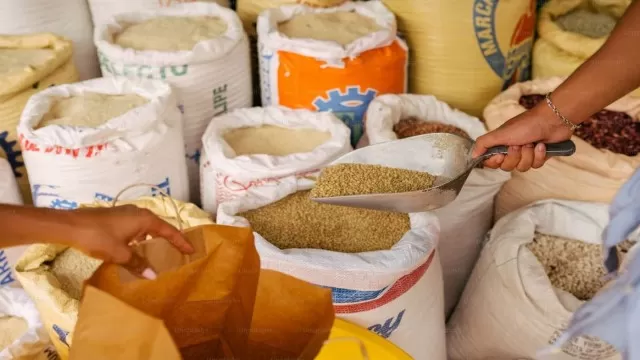Commodities Trading: How to Become a Wolf of Wall Street Without Losing Anything

The сommodities market lures newcomers with the prospect of robust profits and intimidates them with its diversification. To get the ball rolling, you need a solid theoretical training.
This illustrative guide will explain how to trade commodities and its features on the example of crude oil.
The Power of Investment Tools
A fundamental rule of investing is that you can't keep all your eggs in one basket. To reduce the risk of financial losses, your investment portfolio should be diversified.
The modern market stands with an impressive choice of investment instruments. Among them are the currencies from different countries, futures contracts for raw materials and other goods, and shares of investment funds and securities.
Investment in Commodities
Basic raw materials can easily be transformed into a wide array of services and assets, making them lucrative for both beginners and professional investors. Before entering this market segment, you need to familiarize yourself with its core features and identify which goods may offer the best returns.
Key Points of Commodity Investment Strategy
- Commodities can be utilized to diversify an investment portfolio and protect it against inflation.
- Focusing on a narrow market segment or a single commodity is typically ineffective.
- The cost of commodities for investment is determined by geopolitical factors, as well as the dynamics of supply and demand.
- Commodity assets, such as physical gold bullion, can be directly owned by the investor, encompassing mutual funds, ETFs, or futures contracts for trading.
Commodity Investment Features
People began trading in raw materials thousands of years ago, when no one was aware of securities. Such trading was extremely important and united people from different cultures and religions. Since then, the commodity market has come a long way, transitioning from camel caravans with silk and spices to modern stock exchanges, where traders may never touch the object of purchase and sale.
Today, the commodity market provides a breathtaking opportunity to invest through exchange-traded funds, mutual funds, and by purchasing securities of companies or directly in commodity assets.
Advantages and Disadvantages of Commodities
One major advantage of investing in commodities is their protection from inflation. When inflation rises along with prices, the demand for commodity assets leaps as well. Such an investment allows you to get rid of the dictate of the dollar, since the cost of raw materials only rises when the exchange rate of the American national currency falls.
In addition to diversification protection, commodity investments allow you to make cash investments more profitable. Global demand for raw materials is always at its peak. It is not greatly affected by changes in key interest rates, exchange rates, and other economic factors. Therefore, securities of companies focused on raw materials are characterized by increased investment profitability.
Nonetheless, investing in commodities may involve certain risks. This type of asset is characterized by more volatile behavior. For example, funds that track a narrow economic segment or a single commodity can experience significant price fluctuations. Trading in commodity futures contracts is associated with speculative risks due to their diversified nature.
Investment Features of Crude Oil
What factors influence the pricing of crude oil? Once extracted, this valuable mineral is used to produce gasoline, kerosene, diesel fuel, machine oil, asphalt, synthetic fibers, plastics, and even products like medicines and cosmetics.
The cost of oil depends primarily on supply and demand dynamics. If the demand for raw materials increases while production falls, the product becomes costly. Conversely, if there is overproduction and decreased demand, the resource will become cheaper.
Consumer and industrial demand in leading developing countries such as India and China greatly affects the cost of oil. Geopolitical instability and military conflicts in oil-producing regions can also contribute to the formation of the price of black gold.
Crude Oil Investment Guidelines
Investing in this commodity has its characteristics. Buying a barrel of oil is not as easy as buying a sack of potatoes. Among the investment opportunities that open access to this market, one can name such a simple and effective instrument as a futures contract.
As investment assets, you can choose securities of oil-producing companies, oil ETFs, or units of relevant investment funds. All these instruments are available on the stock market.
The energy sector directly invests in securities of oil companies. Therefore, purchasing shares of ETFs or mutual investment funds operating in this area can also be safe and profitable.
Tips for Commodity Trading
Before learning commodity trading, get the answers to the triad of common questions:
- What is the state of production in the world?
- Are new network suppliers emerging?
- What is the volume of natural reserves of a chosen resource?
In addition to the options presented here, sugar, grain, coffee, cotton, silver, platinum coins, and many other commodity goods can be considered as profitable investments.
Disclaimer
Possible11 is a sports news and analysis platform designed purely for entertainment and educational purposes. All match previews, player insights, and team analyses are based on publicly available information and expert opinions. We do not promote or support betting, gambling, or real-money gaming in any form. Users are encouraged to enjoy our content responsibly and use it for informational purposes only.












Give Your Feedback